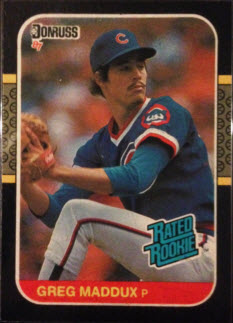Greg Maddux and Leaders

After winning four Cy Young Awards and 355 baseball games – mostly with the Braves and Cubs – Greg Maddux was inducted into the Baseball Hall of Fame on Sunday.
 Two things were told to me about Maddux from former major league players that can be insightful for leaders.
Two things were told to me about Maddux from former major league players that can be insightful for leaders.
Steve Parris, a University of St. Francis athlete who pitched approximately six years in the majors, once spoke to our basketball players on concentration. Who better to talk to any sport team on concentration than a Big League pitcher? After his presentation, our players had the opportunity to ask general questions about baseball. One of our players asked Steve who Big League hitters hated to bat against the most. We all thought it would be one of the great fastball pitchers – Nolan Ryan, Randy Johnson, etc.
Steve said it was Maddux because one thing hitters at the Big League level don’t want is to look bad at the plate. If you strike out on a 95-mile an hour fastball, everyone understands. Maddux didn’t throw 95; he just made you look bad.
Mark Grant, a Joliet Catholic High School athlete and the current voice of the San Diego Padres, was on the pitching staff at Atlanta with Maddux. He told us when the scouts would present the strengths and weaknesses of the opposing hitters prior to a series, all the pitchers listened. But Maddux not only listened; he took copious notes on all the hitters.
Another former teammate, Kevin Millwood once said that he had never known a player to be so meticulous about preparation and knowledge of batters. “’I think when he retires he could surely be a pitching coach,”’ he said. “’But he has made such a study of batters that he’d make a great hitting coach.” (Source)
Two thoughts leaders may consider. None of us, like Major League hitters, want to look bad. I think the only way to prevent looking bad is to do what Maddux did with the scouts – get prepared. Proper Preparation Prevents Poor Performance.










